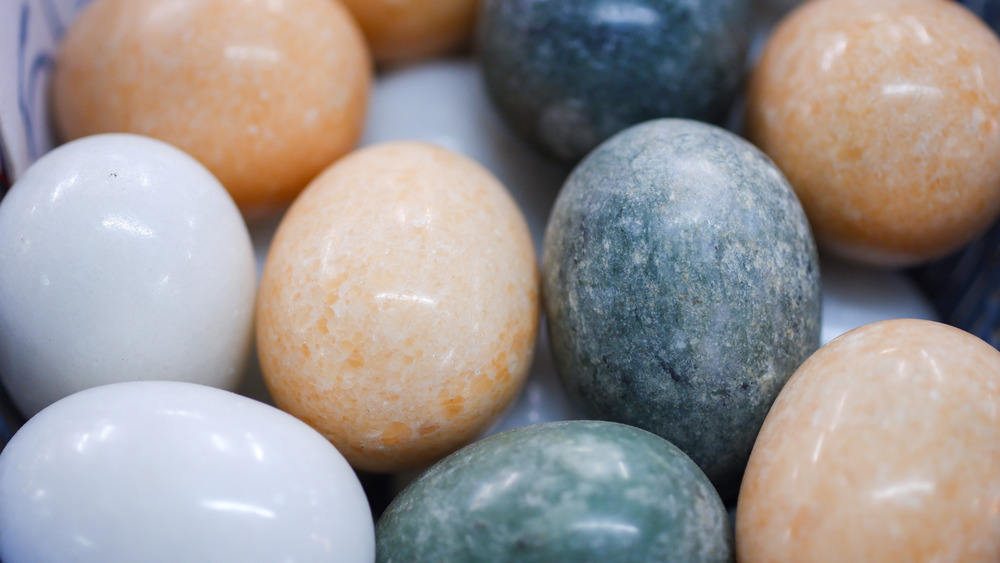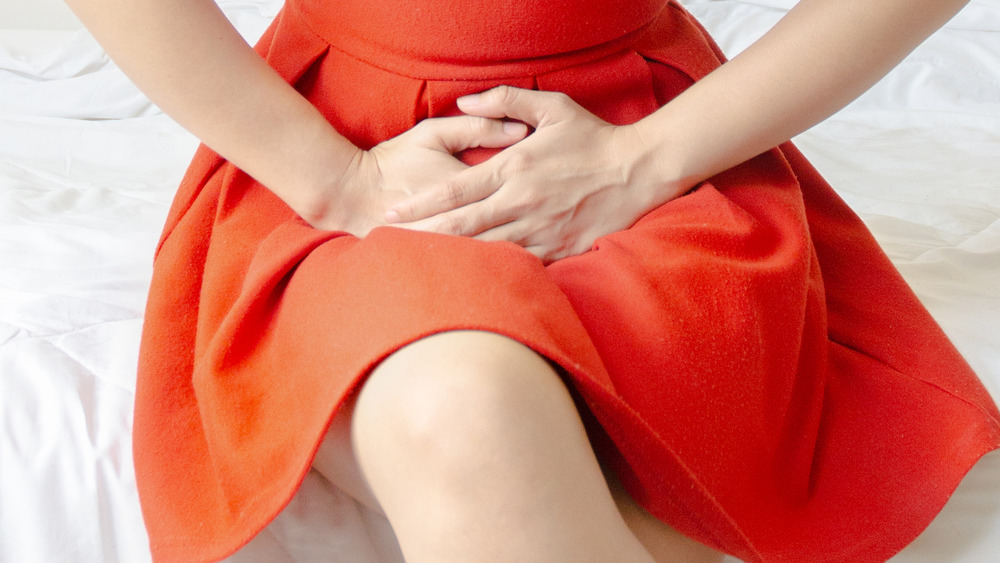What You Should Know About Yoni Eggs
Any time you see a product billed as an "ancient Chinese secret," you should probably look for a second opinion. The yoni egg is no exception. These little stone eggs — usually made of jade or rose quartz — were marketed by Goop in 2017 as secrets long held by concubines in Chinese temples. The company claimed that the egg, when inserted into the vagina, would help tighten Kegel muscles while healing or cleansing a person's energy.
On the surface this all looks great. As the Mayo Clinic reports, strengthening your Kegel muscles helps prevent leakage when you cough, laugh, jump, or sneeze. This is especially helpful for older women or those who have had a baby. Some people also claim that Kegel exercises tighten the vagina. The myth has been debunked several times, such as in this 2014 Cosmopolitan article, but it sticks around.
Instead of "tightening" the vagina, Kegel exercises strengthen the muscles that contract during sex. And weighted objects like ben wa balls have been marketed to help with this. Yoni eggs work in roughly the same way. But this is where the claims start to fall apart.
The issue with yoni eggs
OBGYN Jennifer Gunter and Sarah Parcak, a National Geographic Archeology Fellow working out of the University of Alabama at Birmingham released a paper in 2019 as a response to Goop's historical claims. Together the women examined over 5,000 jade artifacts using four different Chinese art and archeology collections available in the United States. They did not find a single jade vaginal egg and found no reference to them in literature.
There's also the issue of the 'healing' claims made by yoni egg manufacturers. The issue with them is, unfortunately, a complete lack of evidence. In fact Goop was sued in 2019 because there was no evidence, as reported by the LA Times. Goop's claims included the egg's ability to balance a woman's hormones, increase bladder control, and regulate periods just to name a few. When pressed, however, Goop couldn't provide any evidence.
Dr. Gunter, author of the paper debunking the eggs as Chinese secrets, also worries about the eggs introducing bacteria to the vagina. She explained her concerns to Health in an article updated February of 2021: Even polished stones are porous, which means the eggs could lead to yeast infections or nastier side effects, even if cleaned between uses.
Ultimately the eggs just aren't worth it. There isn't enough evidence to suggest that they're better than standard Kegel exercises like the ones detailed on the Harvard Health Publishing website. Basic exercises are cheaper and easier to fit into a busy schedule, no "ancient secret" required.


